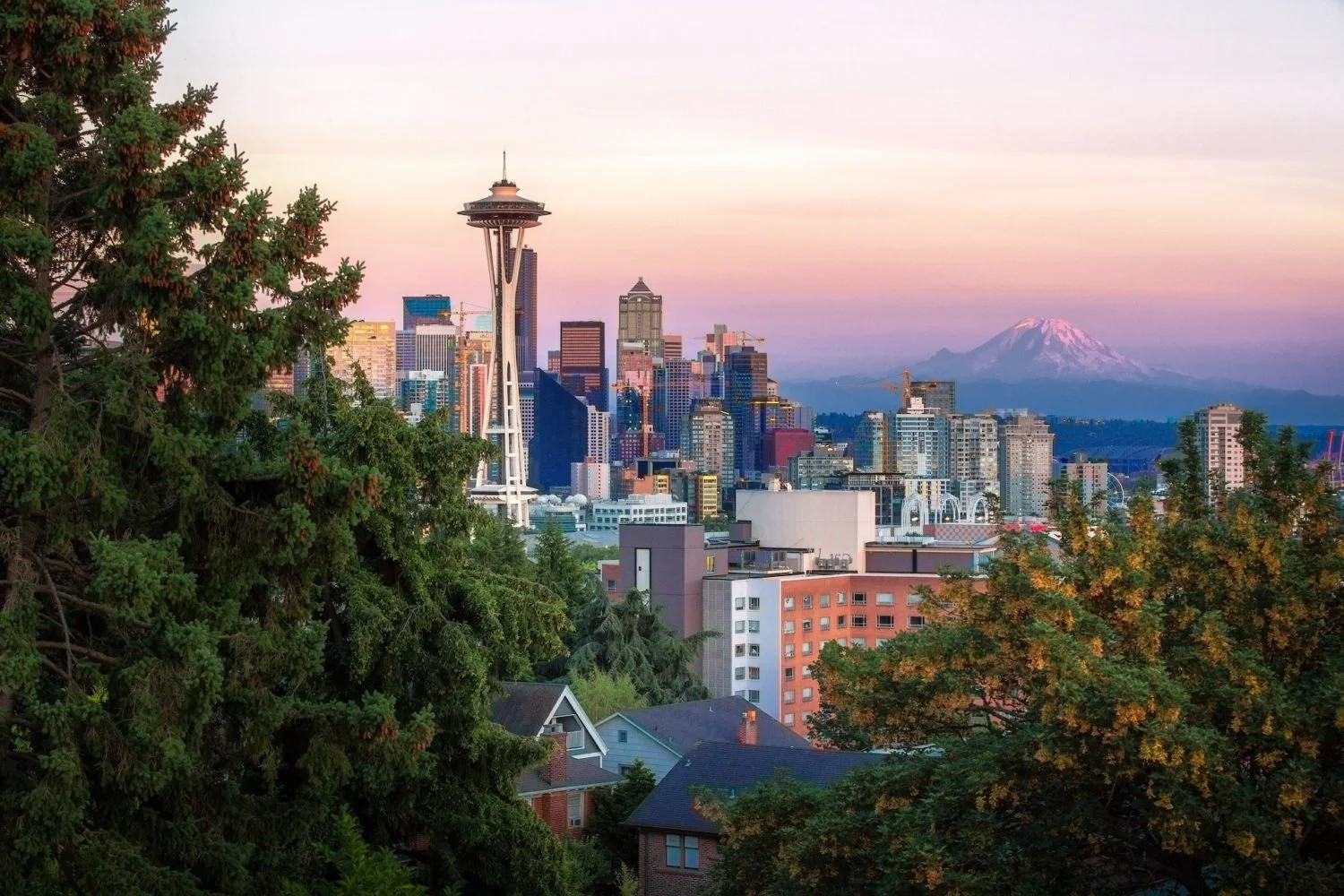homestate washington
By Ben Everidge for Thomas
Photo Credit: Washington Tourism
washington at the Crossroads: 10 Issues That Define the evergreen state’s Future
“Washington may look like America’s progressive dream, but rising homelessness, crime, and polarization threaten to reveal a harsher potential truth: the Evergreen State may be struggling to live up to its own promise.”
- Ben Everidge
Washington is a state of contrasts: booming tech corridors and struggling rural towns, progressive ideals and deepening divides, natural beauty and environmental strain. With the 2024 governor’s race already reshaping politics and significant economic and social challenges ahead, the Evergreen State is a bellwether for the future of progressive governance in America.
1. The 2024 Governor’s Race and Democratic Dominance
Governor Jay Inslee’s departure after three terms set the stage for a fierce battle among Democrats and a reinvigorated Republican Party trying to stay relevant. Washington is a blue state by reputation, but independent and suburban moderates have the power to tilt close races. The contests, past, present, and future, determine whether Washington will continue to double down on progressive governance or will eventually seek a more pragmatic center.
2. Housing Affordability and Homelessness
Seattle and other urban areas face an ongoing housing affordability crisis. Skyrocketing rents, limited supply, and high permitting costs have driven a surge in homelessness that now defines politics across the state. Voters are increasingly demanding solutions that go beyond temporary shelters, focusing on mental health services, zoning reform, and the development of affordable housing.
3. Public Safety and Crime Concerns
Rising property crime, visible drug use, and concerns about policing reform have reshaped debates in Seattle and beyond. While Washington pioneered police accountability laws, critics argue that reforms have gone too far, hampering law enforcement effectiveness. The balance between justice reform and community safety remains one of the state’s most polarizing issues.
4. Tech Economy and Workforce Inequality
Washington is home to Amazon, Microsoft, and a thriving tech ecosystem that fuels enormous state revenues. Yet, prosperity is unevenly shared: rural counties lag, middle-class jobs are shrinking, and small businesses struggle with regulatory burdens. The question ahead is whether Washington can spread the benefits of its tech-driven growth or whether the state will fracture into haves and haves-not.
5. Climate Change and Energy Policy
Washington has led the way on climate policy, with cap-and-trade programs, renewable energy mandates, and significant investments in green technology. Yet implementation is costly, and critics warn of rising gas and utility prices. At the same time, the state must prepare for wildfires, drought, and coastal flooding. Washington’s climate strategy could serve as a national model, or a cautionary tale of overreach.
6. Transportation and Infrastructure Challenges
Traffic congestion in Seattle, decaying roads in rural counties, and delays in Sound Transit’s massive rail expansion highlight Washington’s infrastructure strains. Billions are committed, but project costs and delays test public patience. The new administration faces pressure to deliver reliable transit, repair roads and bridges, and better connect rural communities to urban hubs.
7. Education and Workforce Pipeline
Washington’s K-12 system struggles with equity gaps, especially for rural and low-income students. Meanwhile, the demand for skilled workers in tech, healthcare, and construction outpaces supply. Community colleges and apprenticeship programs are expanding, but aligning education with industry remains a work in progress. Education reform will be crucial to maintaining Washington’s competitive edge in the economy.
8. Healthcare Access and Mental Health Crisis
Despite being a wealthy state, Washington faces serious healthcare challenges, from rural hospital closures to long waits for mental health treatment. Homelessness and opioid addiction have magnified the urgency. Expanding Medicaid access helped, but costs continue to rise, and structural reform is needed to stabilize the system.
9. Tribal Sovereignty and Natural Resources
Washington’s 29 federally recognized tribes wield significant political, legal, and cultural influence, particularly in areas such as overfishing, land use, and natural resource management. Conflicts over salmon recovery, hydroelectric dams, and treaty rights underscore the state’s unique dynamics. Respecting sovereignty while balancing economic and environmental goals is a defining challenge for state leadership.
10. Political Polarization and Independent Voters
Though Washington is reliably Democratic in statewide elections, polarization between urban and rural communities is stark. Eastern Washington feels disconnected from Seattle’s progressive policies, fueling secession talk in some circles. Meanwhile, independents in suburban districts often determine control of the legislature. Their dissatisfaction with partisan extremes may shape the state’s next political chapter.
The Thomas Take
Washington is often hailed as a progressive model state, but it is also a state under pressure. Rising costs, uneven growth, homelessness, and political polarization threaten its reputation for innovation and forward-thinking governance. The Evergreen State’s future will depend on whether leaders can balance bold climate and tech policies with bread-and-butter concerns of housing, healthcare, and public safety. As independents emerge as critical voices, Washington may again serve as a proving ground for what works and what fails in modern American politics.
To learn more about Washington’s issues, read:

